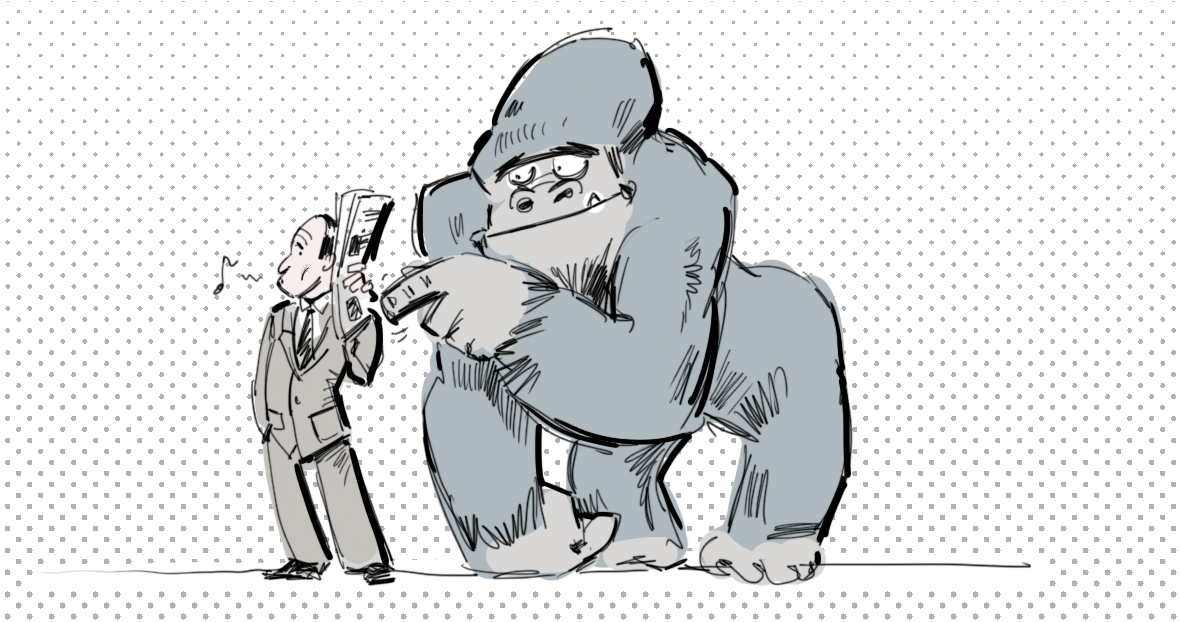
A stark reality underlies any talk about working harder, being more competitive, and transforming your business: a business won’t change until its leaders change.
This is the 800-lb gorilla in any discussion about business transformation, and it is the one leaders find easiest to ignore. Unless the leadership team is brand new, they have been running the company for some time, and its culture and processes reflect their behaviors and attitudes.
And thus the toughest question for any leader is:
Can I change?
Business transformation isn’t primarily about facts and figures, strategy or structure, technology, business models etc. It is first and foremost about people, and the rest of those elements follow. That’s why it is critical that leaders ask:
Am I willing and able to transform myself? Only then will I be able to practice authentic, compelling leadership and gain the trust of my team and organization to follow me.
The core of business transformation is always about changing the behavior of people, and behavioral change happens mostly by speaking to people’s feelings.
But what kind of personal change is necessary to initiate significant corporate transformation? For most leaders, it means shifting towards softer skills and mindfulness. It is one thing to join the popular contemporary chorus “People Come First”, while it is another to mindfully embrace these three words with your heart, thoughts, and deeds. Thus a major key to success is addressing both ‘hard’ and ‘soft’ factors of transformation in a balanced, integrated way.
Skip this step, and – sorry to be so frank – but you become yet another talking head, saying one thing but doing another. Here’s a checklist of what you need to resolve as a leader and leadership team:
- Do I and we (as a leadership team) understand the impact, implications and opportunities that arise when disruptive technologies, innovative business models, regulative changes, or social movements force changes in our business
- Do we share the same ‘sense-of-urgency’ for needed change and are we able to form a strong ‘guiding coalition’ for transformation?
Where are we now? What is our vision for the future, and how do we get there - Do we fully understand what moves people in the context of business transformation: their hopes, fears, and needs regarding communication and collaboration?
- How do we effectively create enthusiasm for the future, and mobilize all management levels and staff to actively buy-in and contribute to our transformation?
- How can we further evolve our corporate culture towards attributes such as: people focus, agility, resilience, high performance, being more innovative than our customers expect while being socially and environmentally committed? More importantly, how can we personally actively model these ideal behaviors?
Does it take tenacity, determination and toughness to lead in times of wrenching change? Yes. Are these qualities enough? No.
The behaviors that make the most difference are ones that many leaders might find foreign or at least mildly uncomfortable at first, such as: compassion, humbleness, vulnerability and mindfulness. In this last trait, we mean the ability to see the present situation as it actually exists, not just in terms of assets and liabilities, but also in terms of the factors that make humans human.
If you truly believe that people come first, start transforming yourself by mindfully embracing and dealing with the softer side of people. As result, you will be more successful than ever before, both as individual and transformational business leader.
Life is change and transformation is the path.
© Radius 1 Consulting GmbH





